A new research paper by CrimSL PhD student Tyler King (Supv. Professor Catherine Evans) was just published in Social & Legal Studies by Sage Journals in an open access format.
King co-authored "Documenting the Document: The Forensic Hospital Report and Its Knowledge Moves" with Joshua Shaw and Liam Kennedy,
He talked to CrimSL Communications about how the paper came about.
CrimSL Comms: Why is this topic important? Why now?
Tyler King: There is a growing trend in sociolegal and anthropological work to account for the material objects in our stories and analyses, instead of focusing solely on human actors. As we say in our paper, "objects do obviously allow, encourage, demand or even forbid humans to say and do certain things." Thus, we believe any examination of how humans make decisions should also account for the material objects that aid in those processes. We take this seriously, showing that even the materiality of the lowly report / document has certain social and legal effects, even outside the report's discursive content. What we hope becomes clear in our context is that the particular material construction of the hospital report is vital to the Ontario Review Board's enactment of the "risky individual."
Perhaps the simplest policy-related takeaway from our wider research project is that a verdict of 'not criminally responsible' is not a get-out-of-jail-free card. In fact, many NCR persons are being detained by the forensic hospital for much longer periods of time than they would have spent in prison had they just pleaded guilty. Not to mention the hospital appears to have a much wider, diffuse conception of 'risk' than other criminal justice institutions, even documenting whether the person's room is 'messy', if their hair is combed, if they are eating healthy, etc.
The hospital report allows the Ontario Review Board to change the question of risk from 'will this person commit harm' into 'will this person have a relapse of their mental illness.' Troublingly, this turns mental illness itself into a risk factor.
CrimSL Comms: How did you come to work with your co-authors Joshua Shaw and Liam Kennedy?
Tyler King: I first met my good friend (and soon-to-be Professor at Kent Law School) Joshua Shaw through his incredibly fun Sociolegal Pub Nights. He and Professor Liam Kennedy first approached me about a potential project looking at how review boards make decisions in 2019, and at that time Josh had already collected numerous comprehensive case files pertaining to persons found "not criminally responsible." As we were coding these massive case files, we realized that the salience of the forensic hospital report was crying out for an "actor-network theory" analysis. Materiality and knowledge production are both things I'm thinking a lot about in the context of my dissertation research on electroencephalographic (EEG) brain scan evidence, and so this paper emerged.
We also realized that there was too much to say in just one paper, and therefore Josh led another study using these case files that looks at the importance of "jurisdictional talk" in risk assessments, which will be published soon in the Canadian Journal of Law and Society. Liam Kennedy is also leading a paper examining the Ontario Review Board's "paternalist" approach to discipline, which is currently out for review.
CrimSL Comms: What drove you to this research? Does it tie in to your PhD thesis or is it a side trip?
Tyler King: My dissertation project traces the sociolegal history of the EEG, a device that records a person's "brain waves" (electrical activity). Having some training in science and technology studies (STS), I was already familiar with actor-network theory and the sociology of translation, but really only came to appreciate their analytical relevance when trying to tell this history. I realized I could not tell the story of how, say, experts talk about EEG-related evidence or how courts weigh it without actually analyzing the machine itself. When we centre this object, we find that many of the social (and legal) concepts we take for granted, like epilepsy, death, and even sleep (which everybody now knows is "truly" a cycle of brain wave patterns) have all been impacted — or I prefer multiplied — by the contingent construction of the EEG.
Abstract
Drawing on case files from a Canadian provincial review board tasked with determining the disposition of persons found ‘not criminally responsible on account of mental disorder’, we explore the role of the forensic hospital report in the production of medico-legal risk knowledges. Through a detailed case study, we show how the report's content and particular material form allow the Board to produce the ‘significantly threatening individual’ – the very thing the Board (and report) are meant to presuppose. We therefore call on scholars to document their documents, and, in the spirit of actor-network theory (ANT), to analytically treat socio-legal objects as active participants in knowledge's creation. By accounting for the ‘knowledge moves’ the hospital report might allow, encourage, or prohibit human actors to make, we hope even ANT sceptics can use these tools to better understand various legal decision-making processes and their effects.
Read the full paper
King, T. J., Shaw, J. D., & Kennedy, L. (2023). Documenting the Document: The Forensic Hospital Report and Its Knowledge Moves. Social & Legal Studies, 0(0). https://doi.org/10.1177/09646639231187093.


